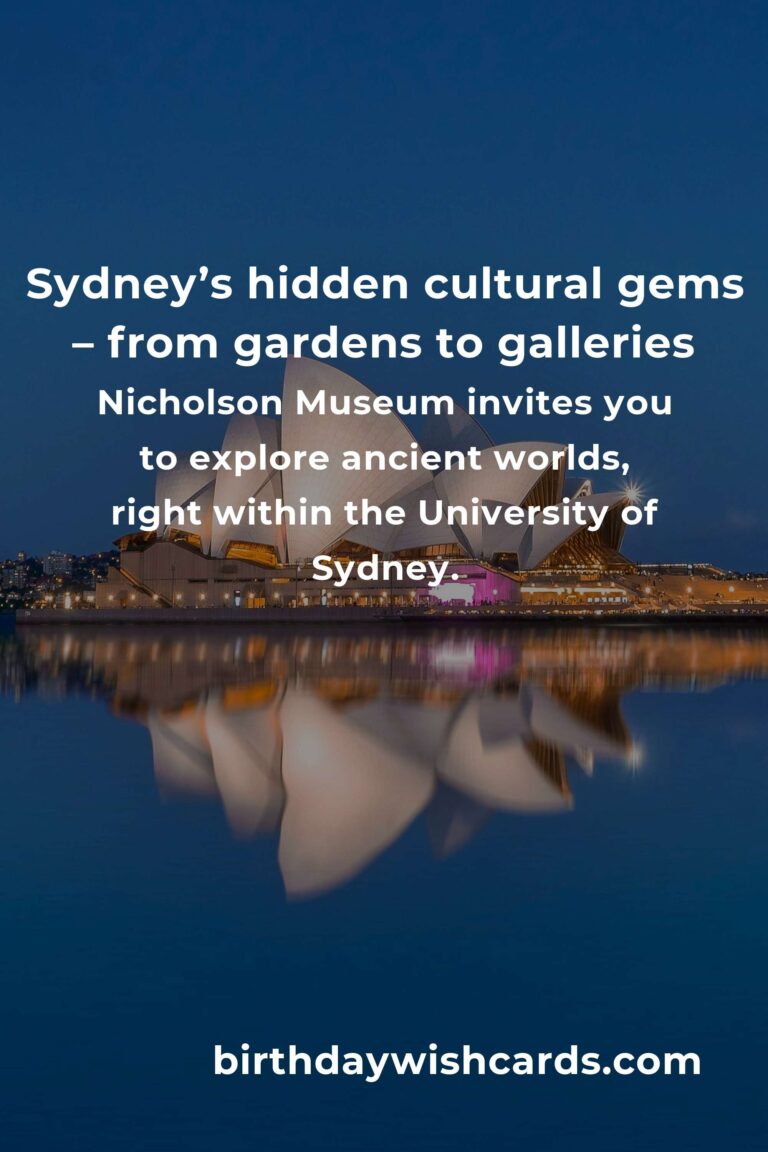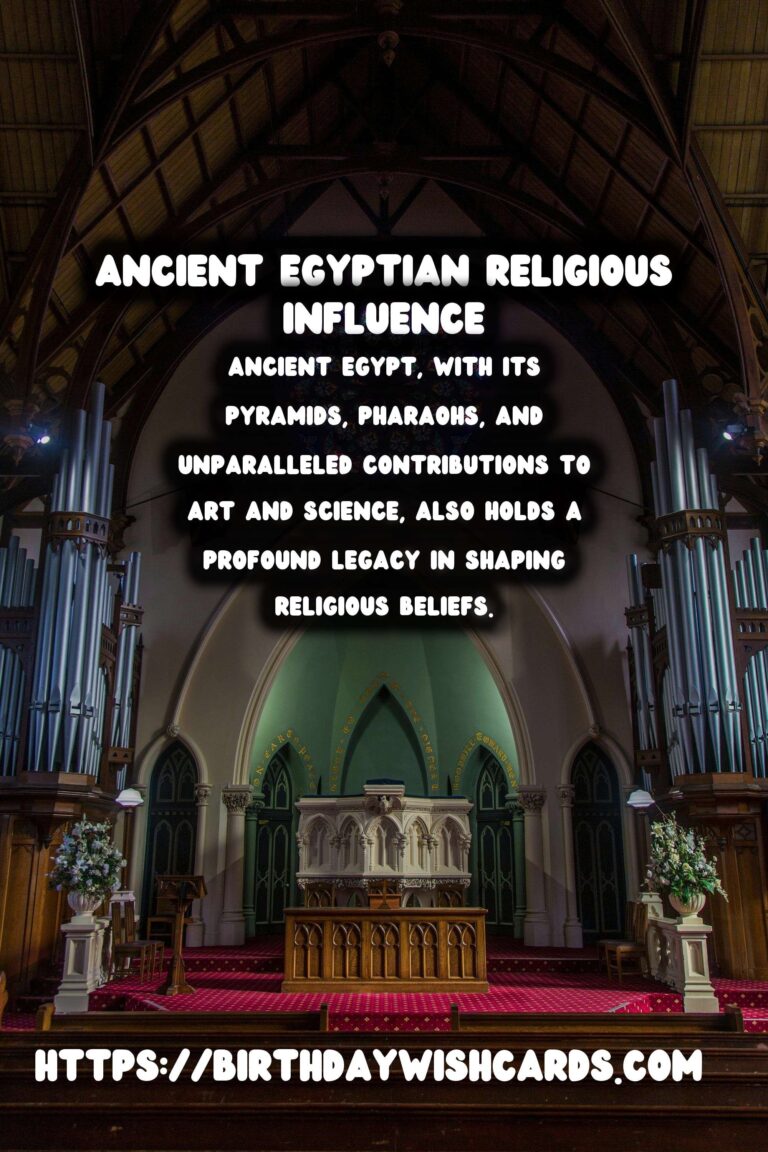
Ancient Egypt, with its pyramids, pharaohs, and unparalleled contributions to art and science, also holds a profound legacy in shaping religious beliefs. This civilization, which thrived for over 3000 years along the fertile Nile River, developed a complex system of beliefs that influenced many aspects of Egyptian life and left a lasting impact on subsequent cultures and religions.
Religious Structure of Ancient Egypt
At the heart of Ancient Egyptian religion was a polytheistic belief system. The Egyptians worshipped a pantheon of gods and goddesses, each responsible for different aspects of life and the universe. Among these, Ra, the sun god, and Osiris, the god of the afterlife, were particularly significant.
The Egyptian worldview posited a universe governed by Ma’at, the concept of truth, balance, and order. This principle was not only crucial in the mundane aspects of their lives but was deeply interwoven with their spiritual and religious doctrine.
The Afterlife and Mummification
The belief in an afterlife was central to Egyptian religion and profoundly influenced their cultural practices. The Egyptians believed life continued after death in a particularly hostile realm that could only be navigated successfully with the correct preparation. This is where mummification played a pivotal role.
Mummification ensured the preservation of the body so the deceased could enter the afterlife. The practice reflected a belief system in which the body was a vessel necessary for the soul’s journey into eternity. The elaborate process of mummification highlights the extent to which Egyptians valued life beyond death.
The Book of the Dead
The Book of the Dead, a compilation of spells and invocations inscribed on papyrus scrolls, served as a guide for the deceased through the afterlife. It includes rituals to protect the soul, ensure wellbeing in the afterlife, and achieve a favorable judgment day.
This text, along with the Pyramid Texts and Coffin Texts, illustrates the profound complexity of Egyptian religious thoughts, reflecting beliefs in magic and the power of words to influence the divine and the mortal realms.
Influence on Other Cultures
Ancient Egyptian religion did not exist in isolation. Through trade, conquest, and cultural exchange, its influence spread across Africa, the Middle East, and even into Europe. The emphasis on the afterlife and the pantheon of deities can be seen echoed in Greek and Roman mythology, and later, some concepts found a place in Christian teachings.
Conclusion: A Legacy That Transcends Time
The religious legacy of Ancient Egypt is vast and enduring. It provided a foundation for the religious practices of many societies that followed and its echoes continue to be felt in contemporary theological discussions. The sophistication and depth of the Egyptians in the realm of religion remain a testament to their cultural prowess, warranting continuous study and admiration.
Ancient Egypt, with its pyramids, pharaohs, and unparalleled contributions to art and science, also holds a profound legacy in shaping religious beliefs. The religious legacy of Ancient Egypt is vast and enduring. 
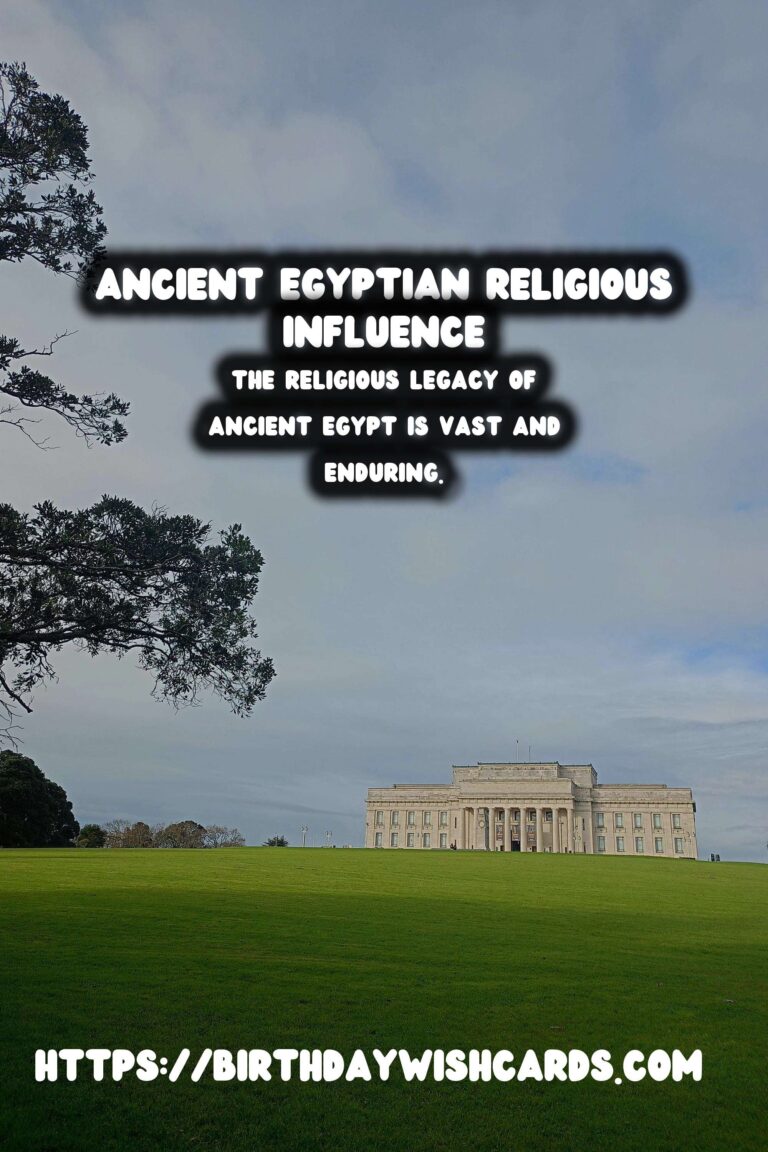
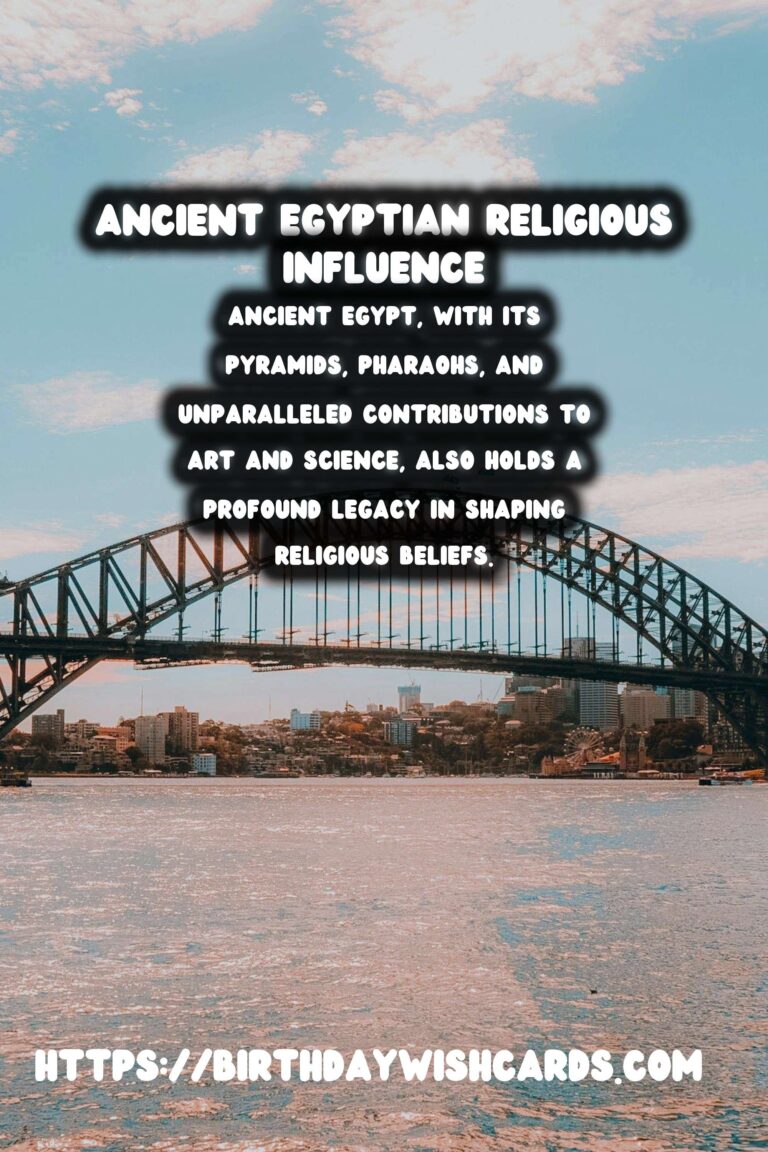
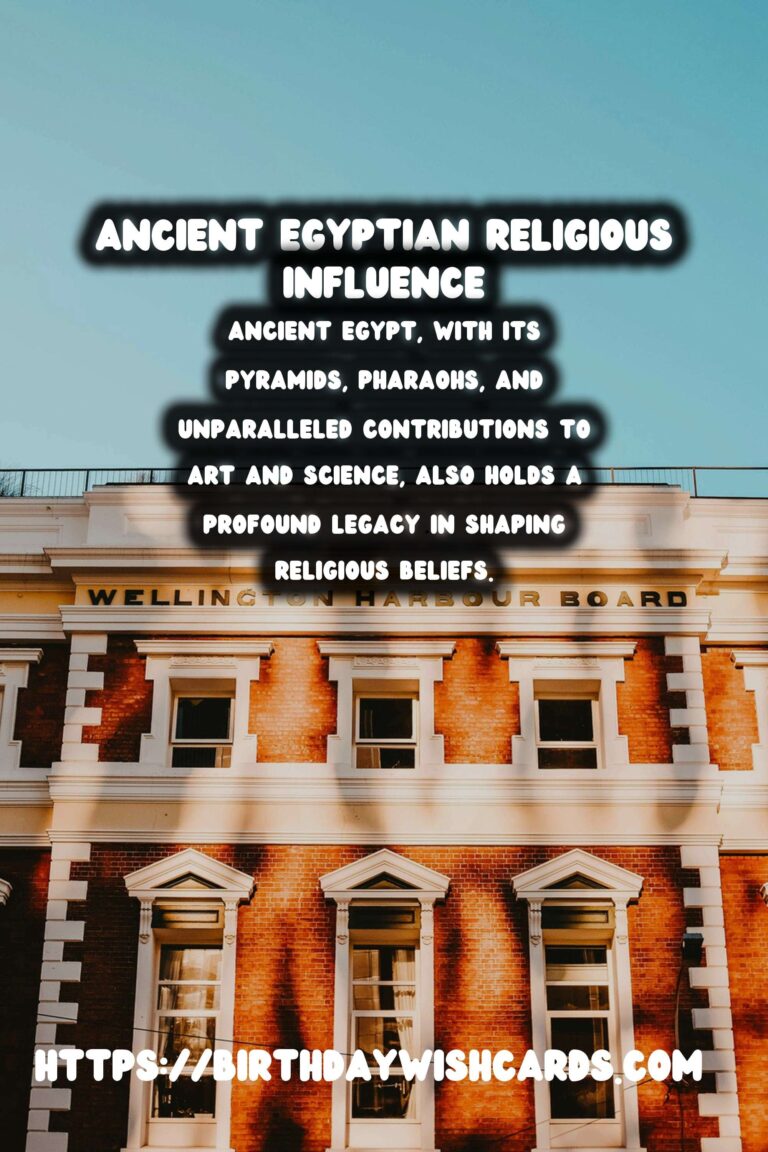
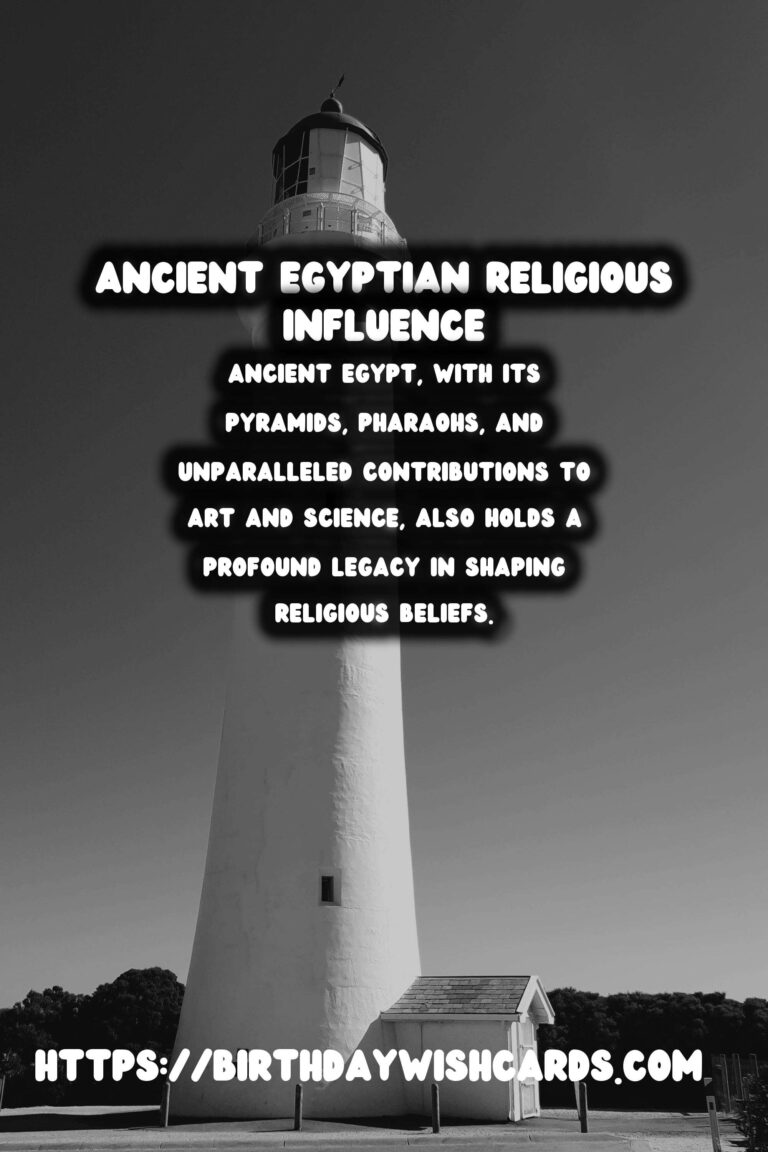
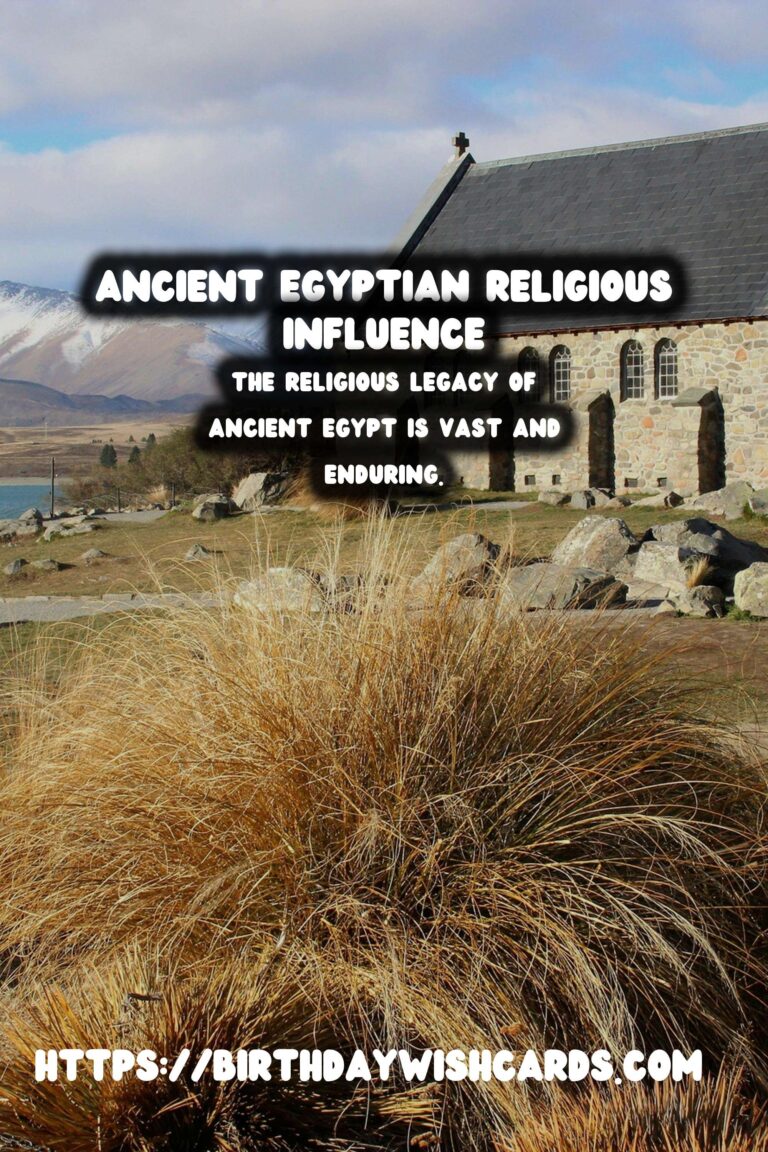
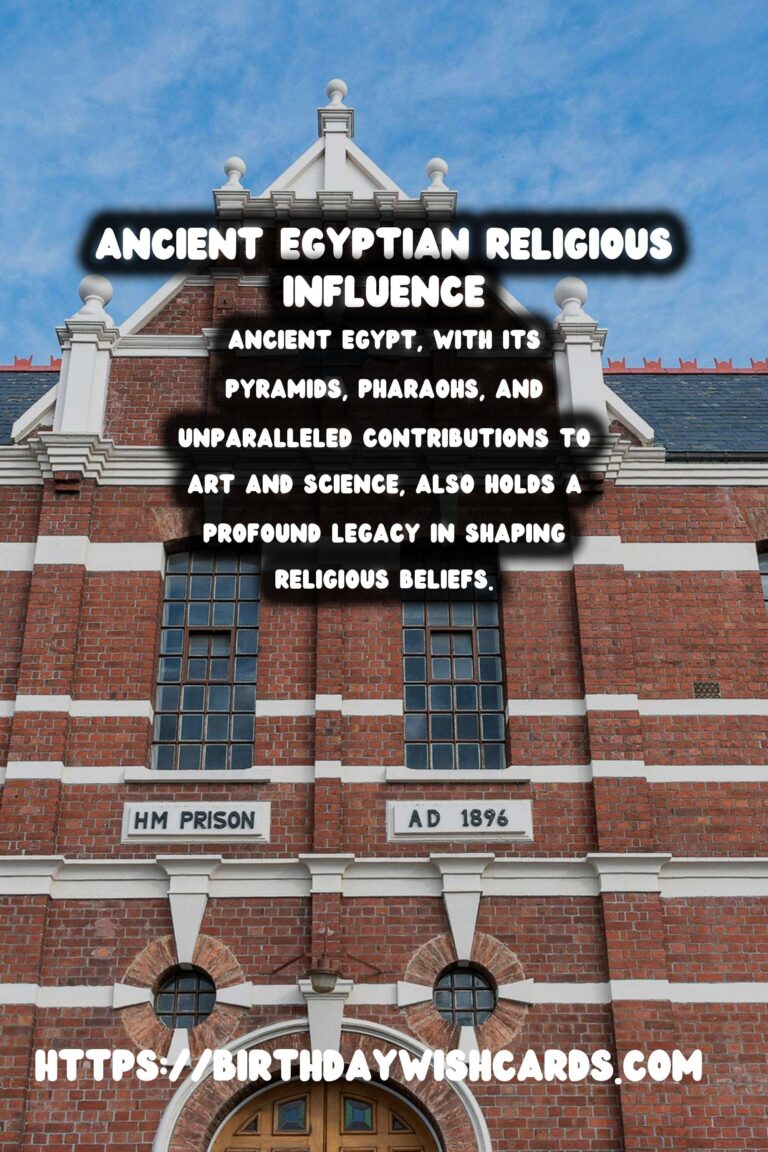
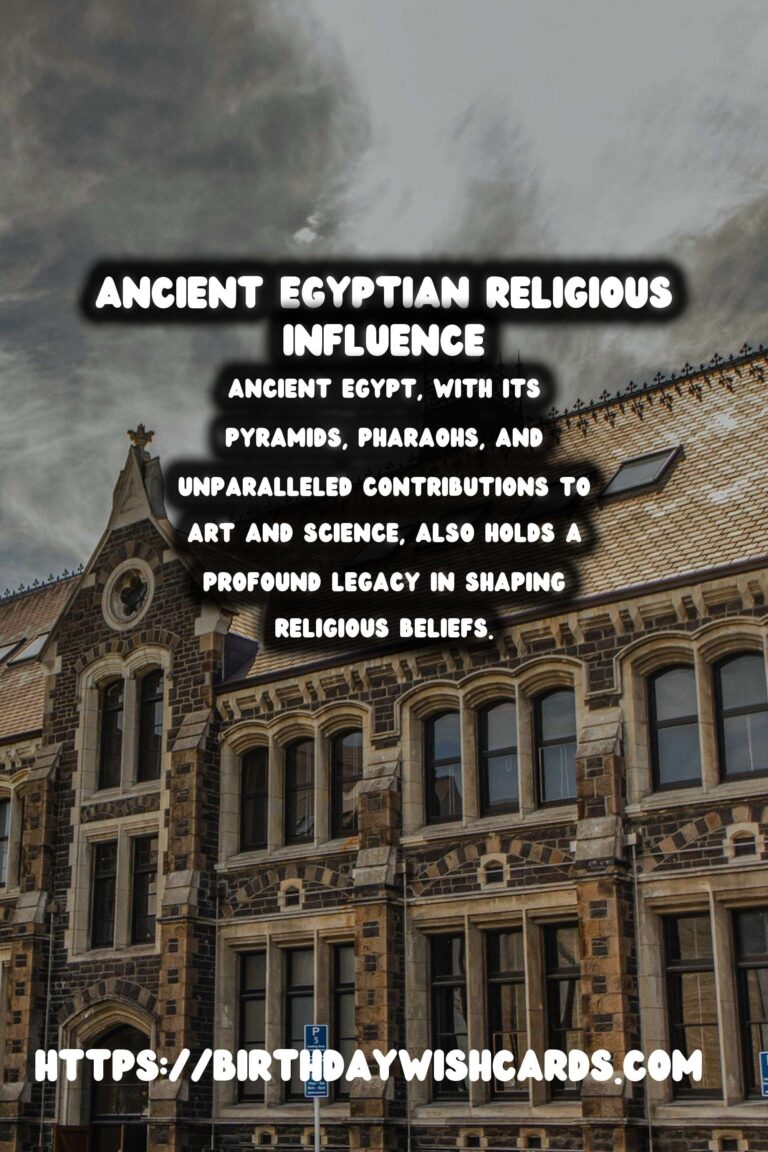
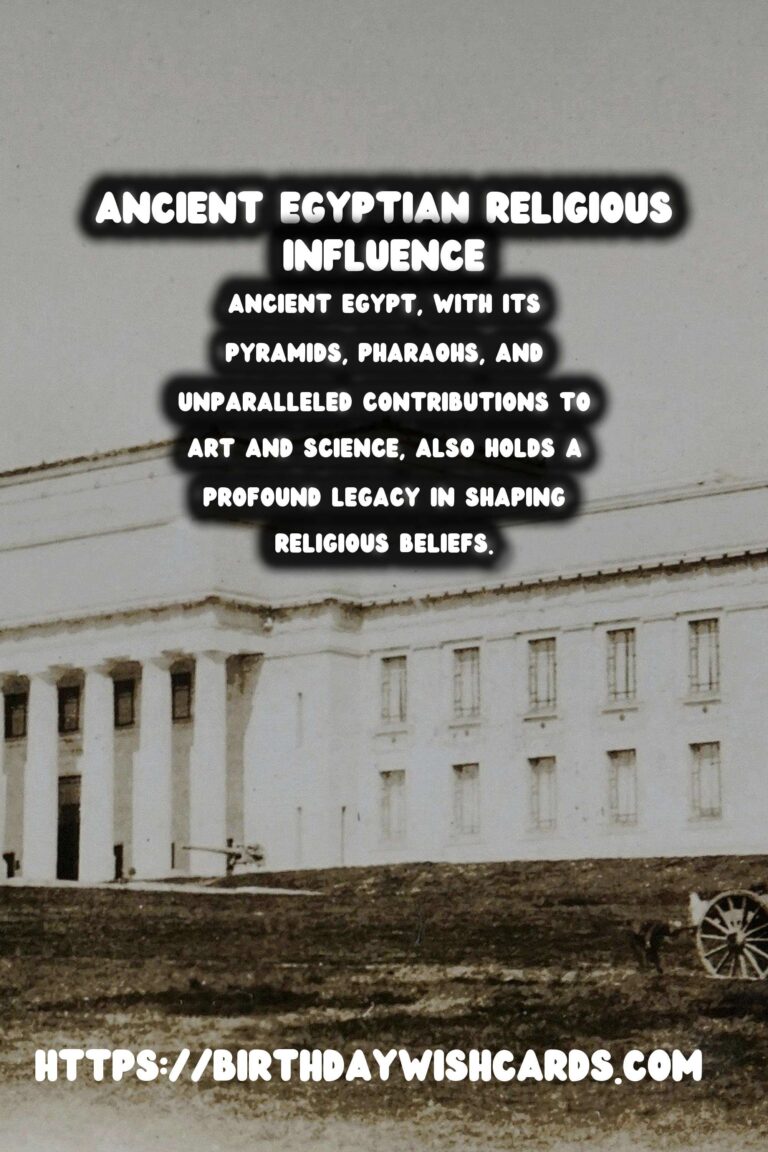
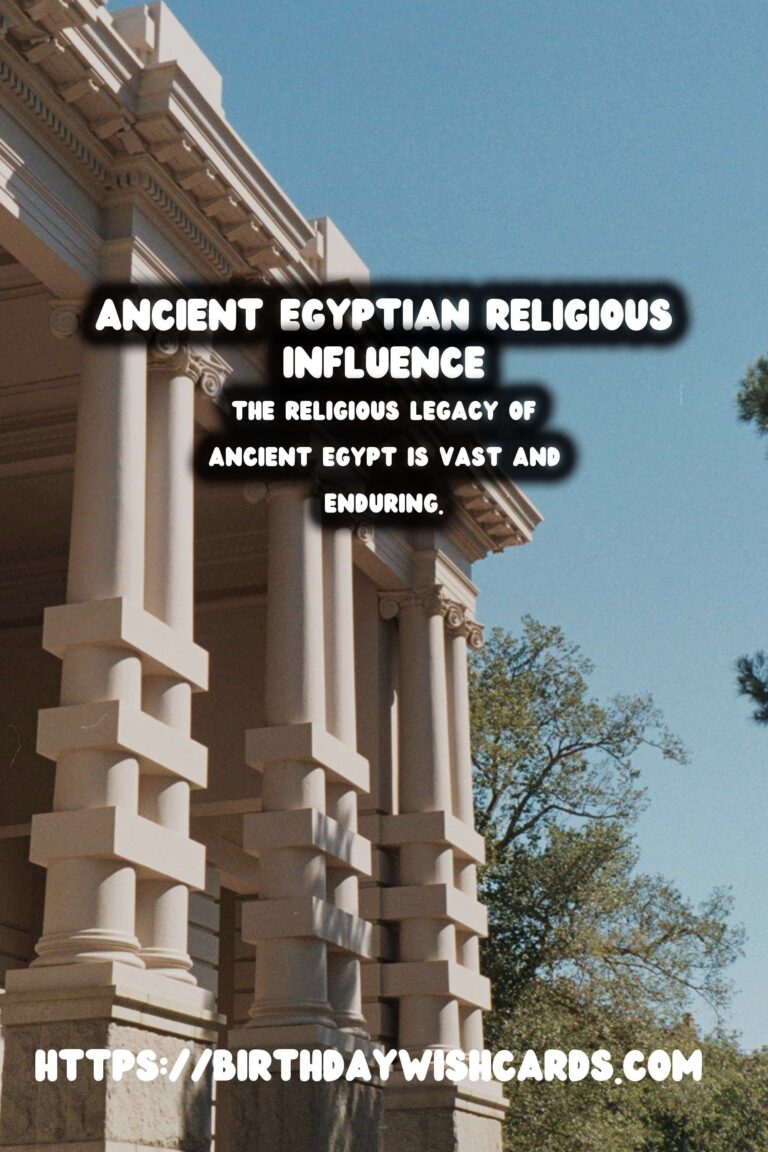
#AncientEgypt #ReligiousInfluence


